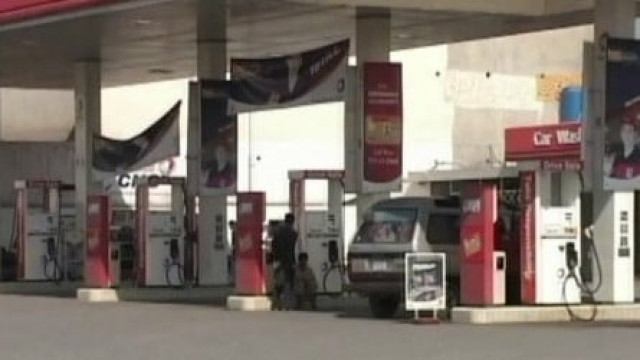CNG stations to switch over to RLNG by 15th
SSGC says supplies from gas fields hit a historic low

The Sui Southern Gas Company (SSGC) would cut connections of the locally produced gas to the CNG filling stations in Karachi and parts of upper Sindh and Balochistan by the middle of this month due to a historic drop in the supply from the gas fields.
However, the utility would still supply imported re-gasified liquefied natural gas (RLNG) to those filling stations on its network who would apply for it by October 15.
“No one [CNG filling stations] will be facilitated for the RLNG supplies if you do not apply for (the imported gas) by October 15,” SSGC acting Managing Director Amin Rajput was quoted saying this at a meeting with the CNG filling station operators on Thursday.
CNG Station Owners Association of Pakistan Chairman Malik Khuda Baksh quoted Rajput as saying that receipt of applications for the RLNG by the given deadline would help the government to plan import of the gas in the near future.
“We will withdraw gas meters from those (CNG filling stations) who would not apply for the RLNG by October 15,” Baksh quoted Rajput as saying. He said there are around 600 CNG stations on the SSGC network in Karachi and other parts of Sindh.
“Some 160 of them have already switched over to RLNG in the recent past,” he said. Besides, another 50 CNG stations applied to the SSGC for RLNG by Thursday. Many more would opt for the RLNG by the given deadline, “as there is no other option with us to keep CNG stations operating”, he said.
He added that the use of the RLNG had not impacted the end-consumer price. “We are still selling CNG at Rs130 per kg and it seems the price will remain unchanged,” he said.
Rajput told the meeting that supply of the locally-produced gas had been reduced to a historic low level of around 900 million cubic feet per day (mmcfd) these days due to suspension of supplies from five fields recently.
Earlier, the SSGC was receiving around 1,200-1,300 mmcfd in the recent past. The supplies have dropped at the outset of winter season in Quetta, where the gas remains a lifeline for the consumers. They use fuel to operate heaters to keep their rooms warm and run hot water geysers.



















COMMENTS
Comments are moderated and generally will be posted if they are on-topic and not abusive.
For more information, please see our Comments FAQ